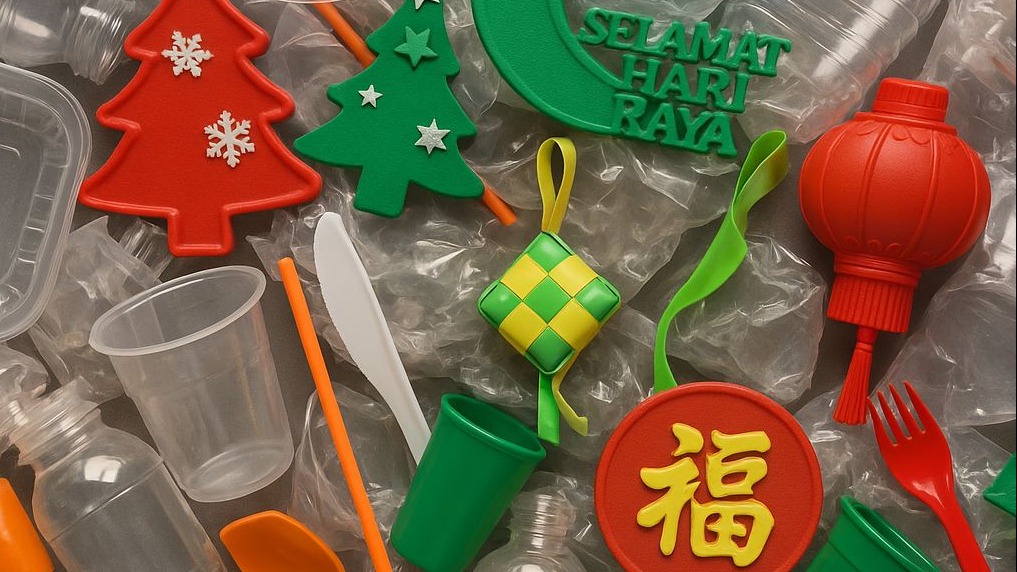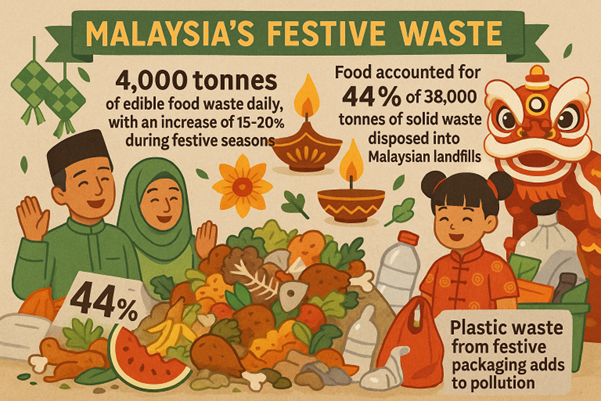
The festive season has just wrapped up, and what a vibrant time it has been—Christmas, Chinese New Year, Hari Raya Aidilfitri, and Deepavali, all brought the country to life with colours, culture, and celebration. From bustling bazaars and open houses to family reunions and long-overdue catch-ups, Malaysians across all backgrounds came together to mark these joyous occasions. But now that the festivities have settled, one thing is becoming increasingly clear: the significant amount of waste left behind in the aftermath.
From plastic food containers to packaging from Raya gifts and decorations, our bins are overflowing. On top of that, uneaten food from open houses often ends up being thrown out. And this isn’t just a one-off problem—it happens every festive season. In fact, Malaysia’s food waste increases by 15–20% during major celebrations like Hari Raya, Chinese New Year, and Deepavali on top of the daily 4,000 tonnes of edible food waste daily. That’s a lot of perfectly edible food going to waste—and plastic waste piling up with it.
And the scary part? It’s not just bad for the environment. It’s starting to hurt us, too.
Let’s talk about plastic pollution. It’s everywhere—our streets, rivers, oceans, and even our food. In fact, scientists predict that plastic production could triple by 2060 if we don’t change our habits. And despite the glossy promises of recycling, globally only around 9 percent of plastics are recycled. The rest ends up in landfills, incinerators, fields, rivers, oceans, and our food. That’s a terrifying thought. Imagine a world where plastic waste completely takes over. Sounds like a sci-fi nightmare, right?
What’s Being Done Globally?
The United Nations is leading the charge with a Global Plastics Treaty, and Malaysia is actively involved in discussions through INC-5—a global initiative aimed at cutting down plastic waste. The treaty focuses on:
✅ Reducing plastic production before it even becomes waste.
✅ Improving recycling and waste management worldwide.
✅ Making companies responsible for the plastic they produce.
✅ Encouraging sustainable alternatives to single-use plastics.
Many countries have already banned certain plastics, invested in eco-friendly packaging, and are finding new ways to make plastic-free living possible. But policies alone won’t fix the problem—we all need to play our part.
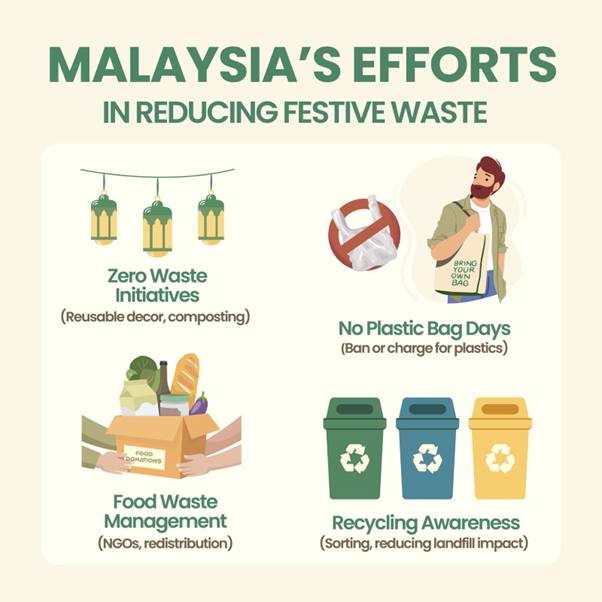
Malaysia’s Festive Waste Problem
We all love celebrating festivals like Hari Raya, Chinese New Year, and Deepavali, but have you ever noticed how much extra waste these celebrations create?
🔹 Food waste goes up by 15-20%, with thousands of tonnes of edible food thrown away.
🔹 Plastic waste skyrockets—from decorations to food packaging and gift wrapping.
It’s time to rethink our festive habits.
What Malaysia is Doing to Reduce Waste
Thankfully, Malaysia has been stepping up with efforts to reduce waste and encourage recycling:
🌱 Zero Waste Campaigns – Encouraging reusable decorations and composting food scraps.
🚫 No Plastic Bag Days – Many states are banning or charging for plastic bags.
🥘 Food Waste Management – Surplus food is being redirected to those in need.
🔄 Recycling Awareness – More education on sorting and recycling household waste.
These efforts are great, but the real change starts with us.
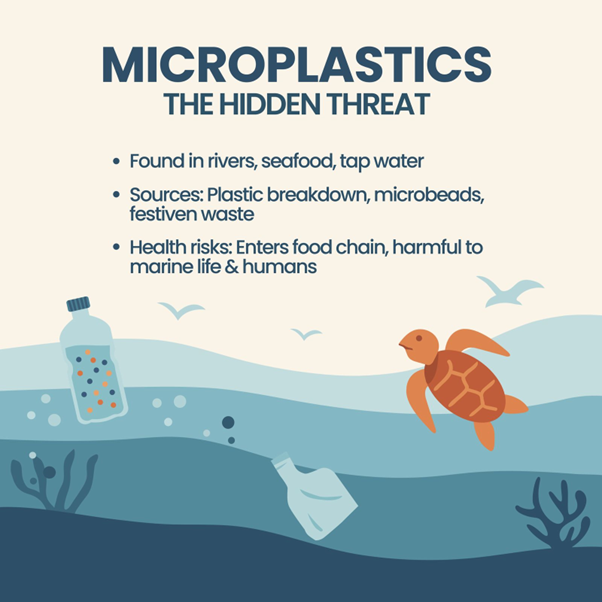
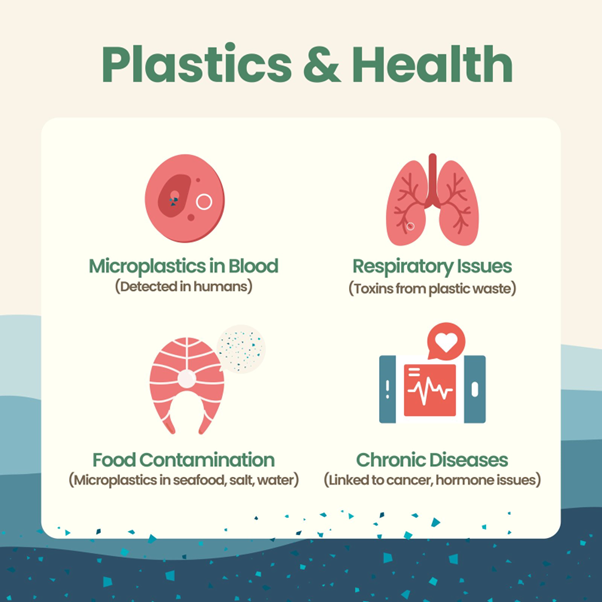
The Hidden Danger of Microplastics
Here’s something scary: microplastics are now found in 83% of Malaysia’s tap water.
Where do they come from?
- Plastic waste breaking down into tiny pieces.
- Microbeads in personal care products.
- Packaging and single-use plastics.
Once they enter the body, they can harm organs, disrupt hormones, and even cause inflammation. Do we really want to be drinking, eating, and breathing plastic?
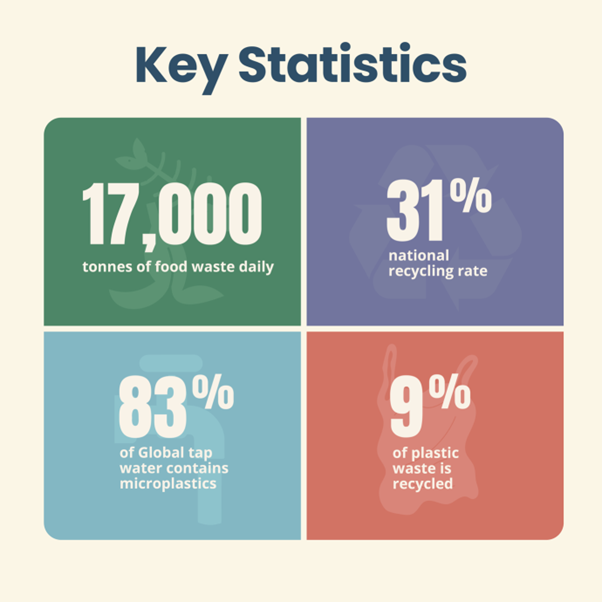
The Numbers Speak for Themselves
📌 17,000 tonnes of food waste daily in Malaysia.
📌 1 million tonnes of mismanaged plastic waste enters the oceans every year.
📌 31% national recycling rate (we can do better!).
📌 83% of our tap water contains microplastics globally.
What Can We Do?
- Reduce single-use plastics—carry your own bag, bottle, and utensils.
- Compost or donate leftover food.
- Choose eco-friendly packaging when shopping.
- Support stronger policies against plastic waste.
Plastic pollution isn’t just a global issue—it’s our issue. And if we start making better choices now, we can help Malaysia move towards a cleaner, healthier future. 🌿
